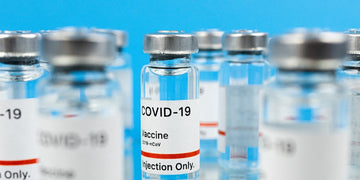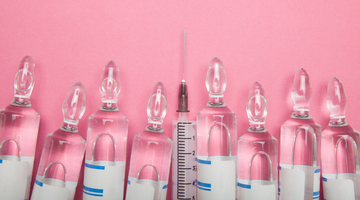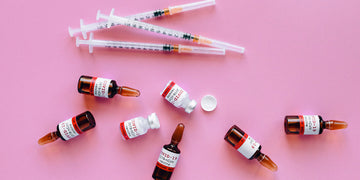The COVID-19 vaccine and menstrual cycles

After almost two years in a global pandemic, there is still plenty of uncertainty surrounding COVID-19. With so much information being discovered about the COVID-19 vaccine, it’s hard to know what to trust. Today, Winx Health (formerly known as Stix) is here to set the record straight on the COVID-19 vaccine and how it can affect your menstrual cycle.
Longer menstrual cycles after getting the COVID-19 vaccine
If you received any of the COVID-19 vaccinations and noticed your menstrual cycle lasting longer than usual, you’re not alone. Here’s what we’ve learned so far:
The National Institute of Health found that women who received a dose of the COVID-19 vaccine showed an increase in their cycle length by around one day compared to women who were not vaccinated. This means vaccinated women had a longer time between bleeding, but they didn’t notice an increase in the number of days they bled for.
A normal menstrual cycle typically lasts 24-38 days, with most lasting around 28 days. A menstrual period can last up to 8 days and still fall within the normal range. The increase seen in menstrual cycle length following the COVID-19 vaccine is well within this range. This increase in cycle length hasn’t been associated with increased symptoms or days of bleeding, but more research is needed to determine if there is any correlation.
What’s causing longer menstrual cycles after getting the COVID-19 vaccine?
As for why the vaccine has these effects on women’s cycles, researchers haven’t found the exact cause. Since the reproductive and immune systems are linked, researchers believe that immune cells affected by the vaccine can trigger a change in your natural cycle. We do not know thus far and this effect can be different for everyone — new evidence is coming out that it may have the potential to affect female fertility.
You may have heard of people noticing their periods being heavier or lasting longer after receiving the COVID vaccine. Some even reported getting their period after not having it for years. There is not enough evidence to link these changes to the vaccine. If you notice your menstrual cycle becoming a problem and affecting your health, specifically after the COVID vaccine, talk to your primary care physician. You should also report any changes in your health post vaccine to the Vaccine Adverse Event Reporting System (VAERS).
COVID-19 Vaccine and Fertility
There has been some speculation around whether there is a link between the mRNA vaccine and infertility. When studying the effects of the COVID-19 vaccine on animals, it was not found to have any effect on fertility or the chances of getting pregnant. However, further studies are needed to substantiate this.
If you are concerned about the COVID-19 vaccine affecting your fertility, talk to your primary care provider or your OBGYN about your questions and concerns.
COVID-19 Vaccine and Pregnancy
As of August 11th, 2021, the CDC officially recommends that pregnant people and those who are trying to become pregnant receive the COVID-19 vaccine. This endorsement comes after additional data showing no increased risk of miscarriage among those who received the vaccine while pregnant. This data is in line with earlier data showing similar results, and the CDC recommendation is also in line with the recommendation by the American College of Obstetricians and Gynecologists, which strongly recommends vaccines for people who are pregnant or are seeking to become pregnant.
Deciding whether or not to get vaccinated is hard. Sifting through waves of conflicting information makes it that much harder and scarier. At Winx Health, we’re here to give you Real Talk and the information you need to make informed decisions about your help. Our content is backed by real medical professionals to ensure our community has easy access to the information we deserve.
Keep Reading

What is a normal menstrual cycle?
Jan 22

The COVID-19 vaccine and pregnancy
Feb 15

Myth-busting: How does the COVID-19 vaccine affect fertility?
Sep 21








